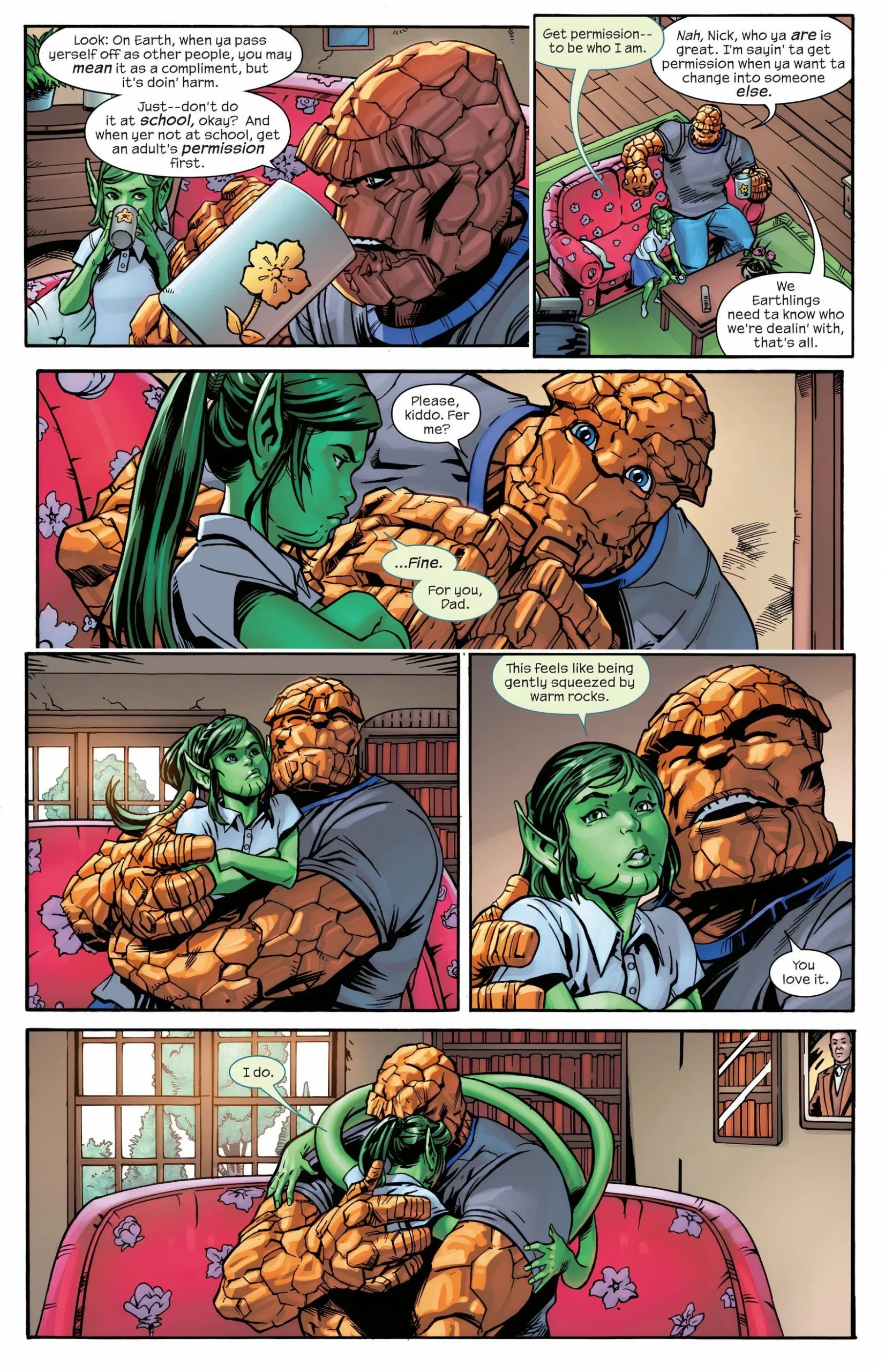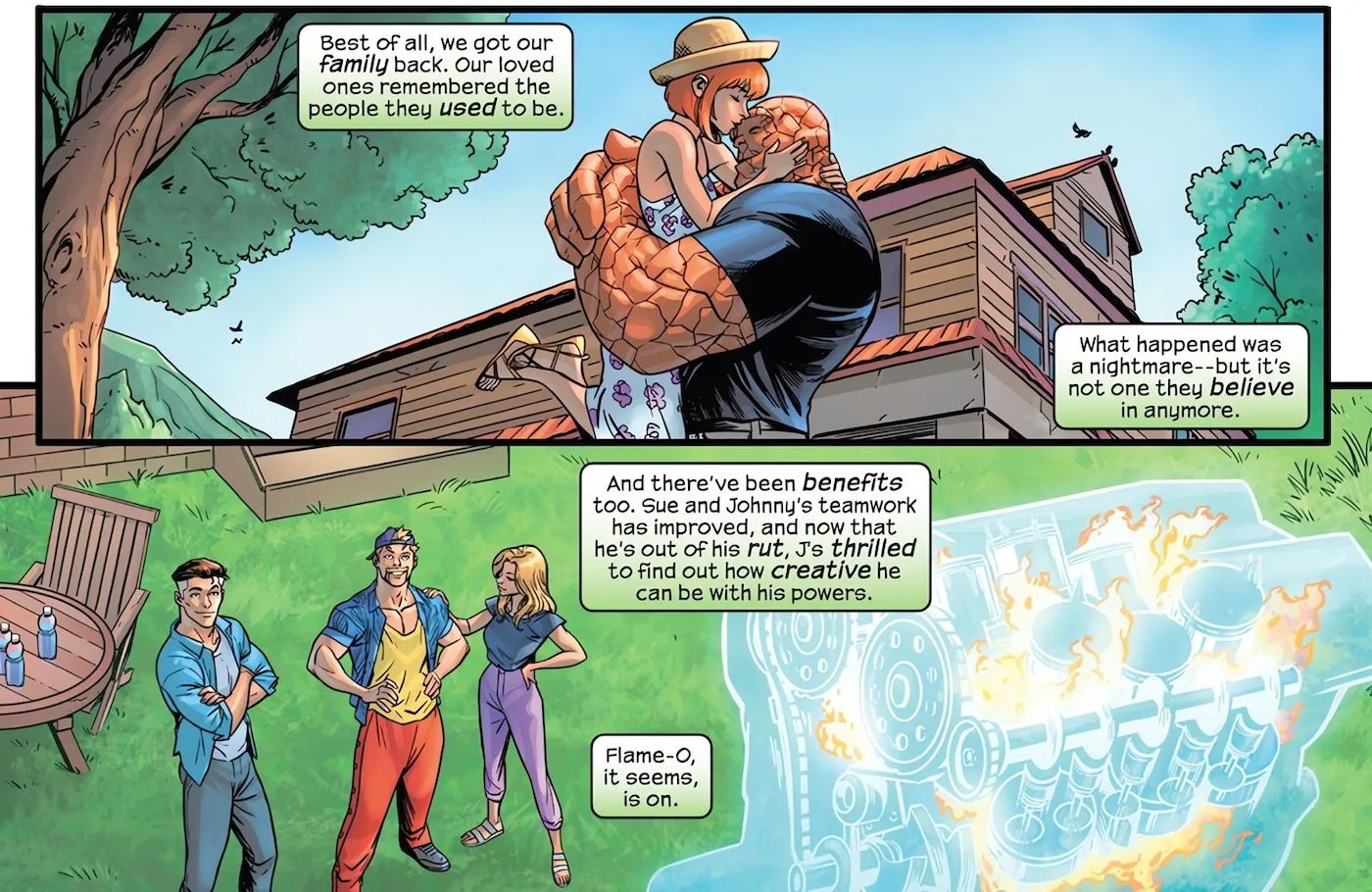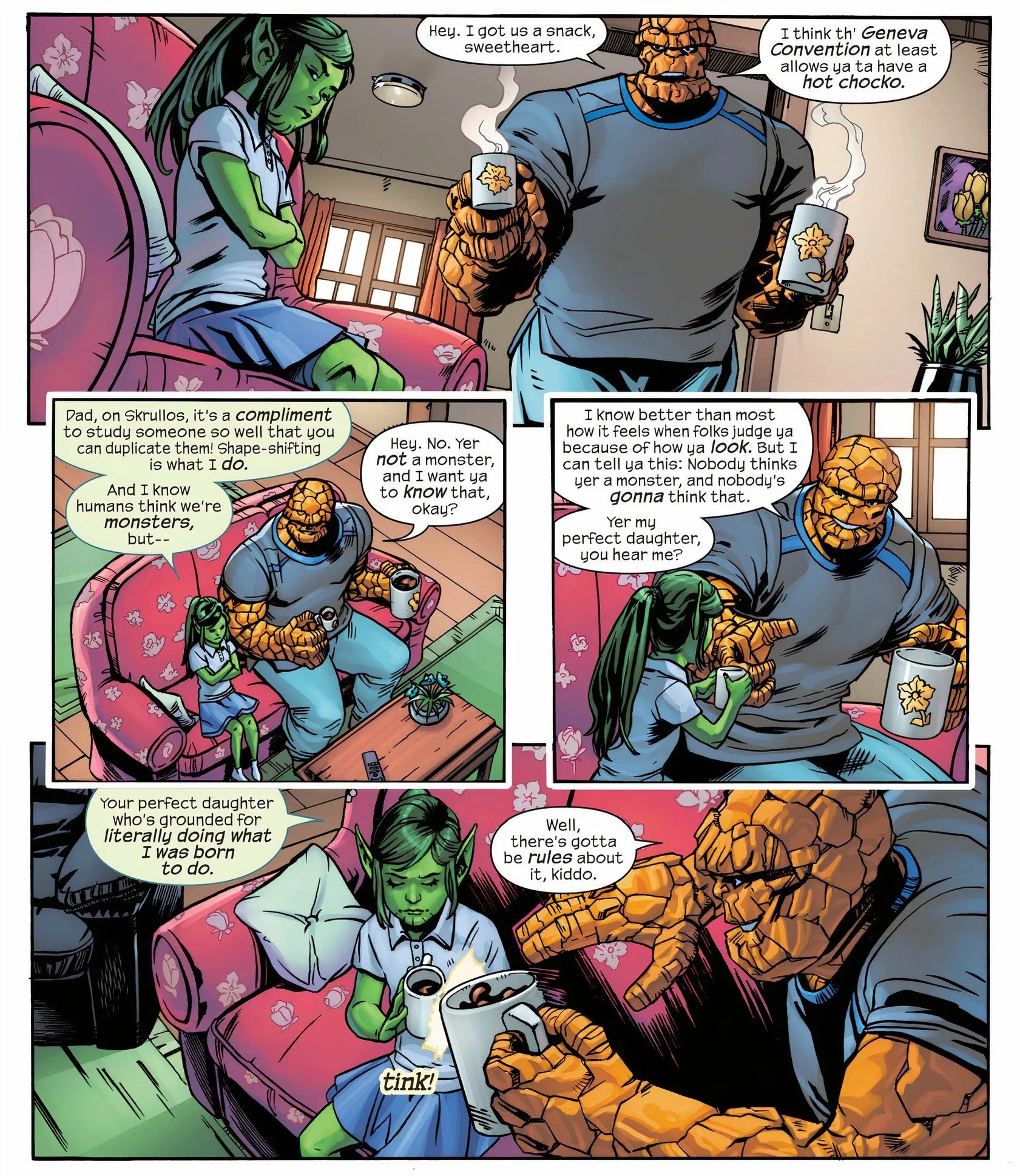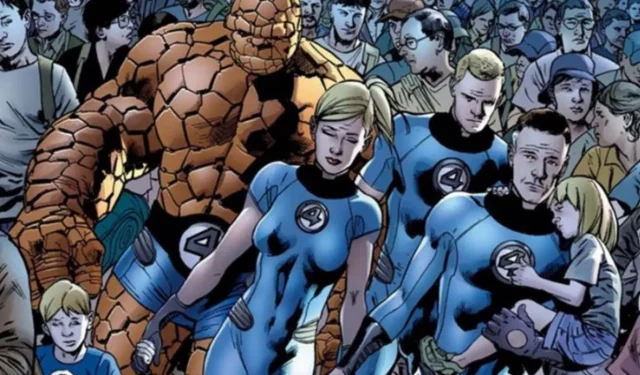Warning: Spoilers for Fantastic Four (2022) #27 follow!
The Fantastic Four has always explored the complexities of family dynamics, initially aligning with the traditional nuclear family model of the 1950s, before embracing more nuanced interpretations through the adventures and growth of Sue and Reed’s children. Surprisingly, when it comes to effective parenting within Marvel’s iconic family, the true champions are not Reed and Sue but rather Ben Grimm and his wife, Alicia Masters-Grimm.
This parenting dynamic is beautifully showcased when Ben faces a dilemma with his daughter, Nicki, who inevitably finds herself in trouble. Their interaction fosters an emotional moment that highlights his formidable parenting skills.

Ben demonstrates a deep understanding as he patiently listens to Nicki, empathizing with her actions while gently establishing important boundaries. His approach respects her unique powers and gives room for her self-expression.
Ben and Alicia: The Emotional Core of the Modern Fantastic Four

Surprisingly to many, it is Ben—the rugged Thing—who proves to be a more nurturing parent than Mr. Fantastic. Reed Richards often bears the brunt of criticism for his detached and rigid parenting style. Instances in which he has made questionable decisions, such as placing Franklin into a coma in Fantastic Four (1961) #141 or injecting him with radioactive nanomachines in Fantastic Four and Power Pack (2007) #2, illustrate this trend. While Reed’s intentions are frequently good, his history of treating his children as subjects of his experiments reflects a troubling paternal instinct.
Though Sue is undoubtedly a more attentive parent than Reed, she finds herself regularly needing to impose discipline, often invoking sternness to establish necessary boundaries that Reed seems to overlook. In contrast, Alicia Masters-Grimm emerges as a central character in the latest iteration of the Fantastic Four comic. Her quick thinking during crises and her remarkable ability to forge connections, even with the aloof Reed, position her as a nurturing figure in her children’s lives—enveloping Nicki and Jo in love and support.
Defying Traditional Parenting Tropes: The Fantastic Four’s Impact
Redefining Familial Concepts

While the Fantastic Four has never conformed wholly to the traditional nuclear family image, the current narrative reshapes this notion entirely, introducing multiple parental figures, four children, and even an unconventional “orbital uncle.” The family-centric atmosphere of the group’s Arizona home serves as a counterpoint to the classic sci-fi settings of previous storylines. The series frequently illustrates family interactions—sharing meals, helping with homework, and navigating daily life—effectively reinforcing their bonds and showcasing the value of these relationships.
This revitalization of the Fantastic Four narrative stands as a refreshing update for a franchise that has faced challenges over the years. Ben’s evolving role as a caring father, rather than just a formidable fighter, serves as one of the series’ emotional highlights. Observing Nicki thrive under his guidance evokes a profound sense of forward momentum within the storyline. For the first time in many years, the Fantastic Four genuinely embody the spirit of Marvel’s “First Family”—although in a fashion that does not solely hinge on Sue and Reed at the forefront.
Fantastic Four (2022) #27 is currently available from Marvel Comics.


